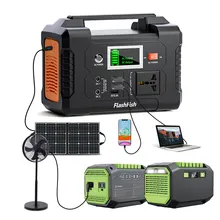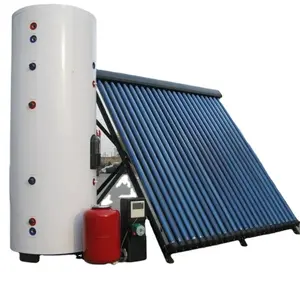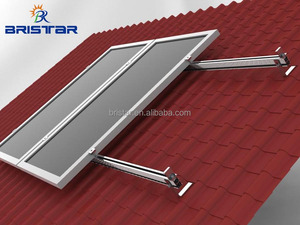Introduction to Thermodynamic Solar Panels
Thermodynamic solar panels represent a cutting-edge category in the renewable energy sector, designed to harness the sun's power more efficiently. Unlike traditional solar systems, these panels combine solar energy collection with thermodynamic principles to extract heat from the environment, providing a consistent energy output regardless of weather conditions.
Types and Applications
There are various types of thermodynamic solar panels, each tailored for different applications. Some are optimized for residential use, providing domestic hot water and assisting with heating systems. Others are designed for commercial settings, where they contribute to large-scale heating solutions and can be integrated into existing heating and cooling systems. The versatility of these panels allows for their use in a range of climates and environments.
Features and Materials
Thermodynamic solar panels are constructed with robust materials such as anodized aluminum or stainless steel, ensuring durability and longevity. The panels contain a refrigerant fluid that circulates, absorbing ambient heat. This process is facilitated by a network of tubes within the panel, which are designed to maximize contact with the refrigerant, thus optimizing heat absorption.
Advantages of Thermodynamic Solar Technology
The primary advantage of thermodynamic solar technology is its ability to operate effectively in various weather conditions, including rain, wind, and even at night. This is due to their unique ability to absorb not just direct sunlight but also the heat from the surrounding environment. Additionally, these panels require minimal maintenance and can be a more sustainable option, reducing reliance on fossil fuels and decreasing carbon footprints.
Innovative Features and User Comfort
Modern thermodynamic solar panels are designed with user comfort in mind. Many models offer features such as wireless connectivity for monitoring and control, enhancing the user experience. The compact design of these panels allows for discreet installation on rooftops or walls, preserving the aesthetic of the property while providing energy efficiency.
Choosing the Right Thermodynamic Solar Panel
Selecting the appropriate thermodynamic solar panel requires consideration of factors such as climate, intended use, and installation space. Prospective users should assess their energy needs to determine the size and type of panel that would best suit their requirements. While the selection process can be intricate, the benefits of transitioning to a thermodynamic solar system are substantial, contributing to a greener future.




































 浙公网安备 33010002000092号
浙公网安备 33010002000092号 浙B2-20120091-4
浙B2-20120091-4